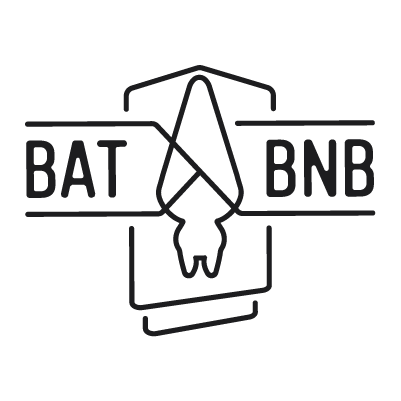8 Natural Ways to Control Pests in Your Garden
February 17 2022 – Harrison Broadhurst
Hi, I’m Cheryl! Four years ago, I moved halfway around the world from Singapore to Los Angeles. I am passionate about gardening organically and living in balance with the ecosystem around me.

Living on the foothills of the Santa Monica mountains in Brentwood, Los Angeles means that we have plenty of wildlife in our backyard. Something that I think is common in all our gardens are snails & slugs.
As a gardener, snails and slugs can be a nuisance as they nibble away at the produce I work hard to grow. However, I don’t want to douse them in poison, as I know that’s not only not healthy for the environment, but these creatures are also part of the natural balance in a healthy ecosystem.
Snails and slugs are important prey for wildlife and many birds rely on them for the calcium and nutrients they need for the formation of their embryos and shells. That cute bird nest that you had in your backyard in spring that you were so excited about? You can thank the snails! Snails & slugs are also important natural recyclers; they eat dead garden debris and their waste is rich in nitrogen and minerals.
If we insist on using harmful and inorganic methods to get rid of the snails & slugs then we risk throwing the entire ecosystem off balance. They play a delicate yet important role and trying to eliminate them can create a ripple effect in the ecosystem in and around your garden.

So, how can I protect my plants without relying on poisons or pesticides? Here are 8 cheap, easy ways you can save your plants without harming the wildlife.
1. NUTSHELLS

Spreading cracked nutshells is an excellent natural way to deter slugs and snails. It works because soft-bodied slugs don’t enjoy moving along sharp surfaces. While this method isn’t 100% effective, it is a great easy and low-cost deterrent, and has the added bonus of providing more nutrients for the soil when the organic shells break down.
What you need: Nutshells
How to apply it: Break up the nutshells into small pieces and place around the flower and vegetable beds that you want to keep safe from slug damage.
2. EGG SHELLS
Broken eggshells work in the same way that nutshells do. The sharp surfaces work as a deterrent for snails in your vegetable beds.
What you need: Empty egg shells

How to apply it: Break up the egg shells into smaller pieces, and scatter around your vegetables, flowers, and plants to create a protective barrier around them. Any slugs that come near your vegetables should turn to search for an easier meal. The egg shells will also provide a source of beneficial calcium for the soil.
3. SPRINKLE SAND

Who else hates the feeling of sticky sand on their feet? Now imagine what it must feel like for snails on their soft underbelly. These small grains create further deterrence and are a cheap and easy way to protect your plants, without killing the slugs and snails or disrupting the ecosystem.
What you need: A container of sand
How to apply it: Sprinkle it around the base of your flower beds. Reapply after rain.
4) EMPLOY GRAPEFRUIT HALVES

If you’re a grapefruit fan, you can place the peels near the plants you want to protect. Slugs will be attracted to these peels and in the morning, they can be overturned as a breakfast bowl for the birds in your yard. Win win!
What you need: Grapefruit peels
How to apply it: Place them upside down so the slugs will take shelter under them in the early morning.
5) USE THE USED COFFEE GROUNDS

Though many of us love the smell of coffee grounds, slugs and snails do not. Scatter it around the plants you want to protect. Better yet, mix it with the egg and nutshells for better protection! Coffee grounds will also decompose to provide excellent nutrients for the plants.
What you need: Coffee grounds
How to apply it: Evenly disperse used coffee grounds around the desired plants.
6) MINI COPPER FENCES
Copper is considered to be a natural slug repellent as the slime they secrete reacts with the metal, producing a tiny electric shock. For best results, clean the mini copper fence regularly with vinegar to prevent the copper from tarnishing.

What you need: Copper tape How to apply it: Fence off the rim of your plant pots or flower beds with copper tape to further help deter the slugs.
7) SLUG REPELLING PLANTS

Plants have many amazing natural properties! There are some plants like rosemary, fennel, rue, and more that are believed to be effective natural repellent for slugs.
What you need: Wormwood, anise, rosemary, rue, or fennel plants or seeds
How to apply it: Plant these plants amongst your flowers, fruits, and vegetables (particularly along the perimeter) to help prevent slug damage.
8) NATURAL PREDATORS

If you want to fully promote a healthy wildlife ecosystem in your garden, one of the best things you can do is let other animals control the pests for you! Birds, turtles, beetles, frogs, and toads are all natural predators of slugs.
What you need: Landscaping creativity and a bit of patience
How to apply it: Attract these animals to your backyard by installing a freshwater feature like a mini pond, set up bird feeders, bird houses, or (if you’re in the UK) even a hedgehog shelter! Inviting these native animals into your garden will naturally control any slug population in your area.
Note: Wait for these native animals to come to your garden naturally. Do not purchase frogs or other animals as they could be invasive and damage the local ecosystem.
OTHER GARDEN PESTS

Slugs are just one of many pests that can inhabit your garden and inflict damage to your plants. How can you deter other garden pests like beetles, moths, leafhoppers, stink bugs, and even bothersome mosquitos?
A surprising sustainable solution is to put up a bat house!

Bats are the world’s best form of natural pest control. Bats are voracious eaters of night insects like japanese beetles, cucumber beetles, stink bugs, leafhoppers, armyworm moths, mosquitos, and much more. Bats can consume up to 1,000 mosquito-sized insects in a single hour!

BatBnB bat house
Putting a high quality, expert-approved bat house in an ideal location is the best way to attract bats to your property, and to benefit from this natural insect removal service that bats provide. Visit BatBnB for bat box hanging tips!
For more gardening inspiration and tips on how to maintain a healthy ecosystem in your garden, follow @mybrentwoodgarden and @batbnb on Instagram.


0 comments